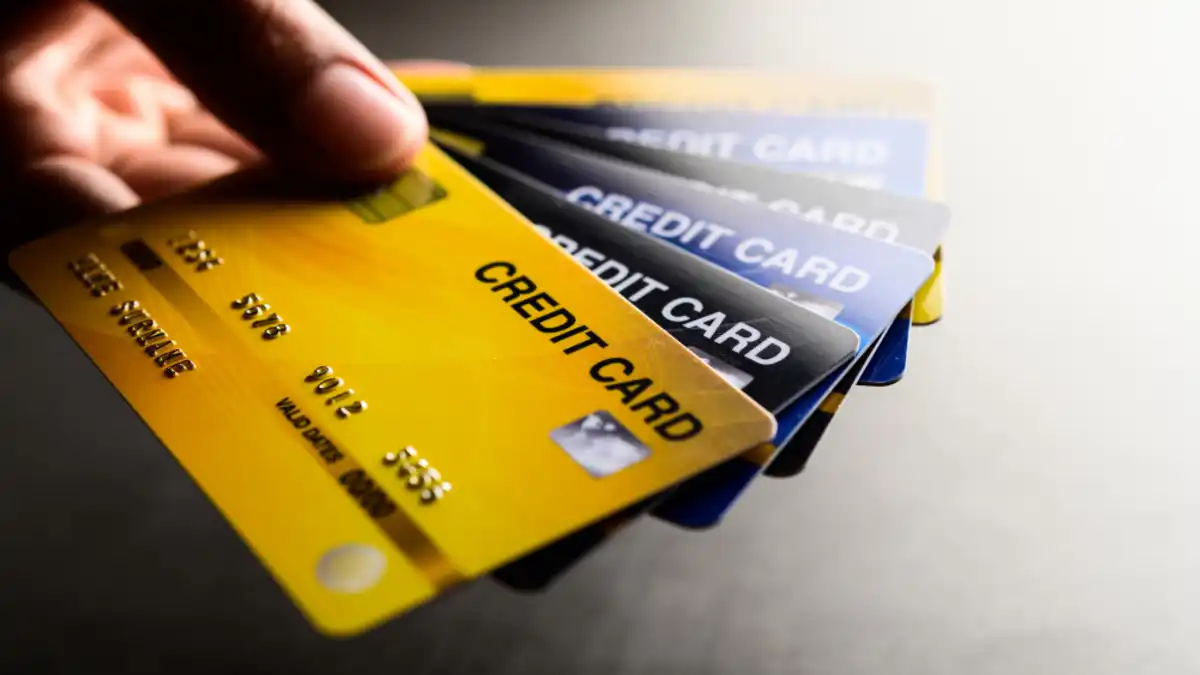Table of Contents
Are you feeling overwhelmed by credit card debt? You’re not alone. Millions of people are stuck in the cycle of debt, making minimum payments and watching their balances grow due to high interest rates. The good news is that with a few smart strategies, you can reduce your debt quickly and get back on the path to financial freedom. In this article, we’ll explore five effective tips to help you pay off credit card debt, avoid future debt traps, and save money in the process.
Here are the 5 Smart Tips to Reduce Credit Card Debt Quickly

1. Prioritize High-Interest Credit Card Payments
When it comes to paying off debt, not all balances are created equal. Do you know which of your credit cards is costing you the most? High-interest credit cards accumulate interest quickly, making it harder to reduce your overall debt. Focusing on these high-interest balances first will help you save money in the long run and reduce debt faster.
Steps to Prioritize High-Interest Debt:
- List All Your Credit Cards: Write down each balance along with its interest rate.
- Pay More Than the Minimum: To make real progress, pay more than the minimum on your highest-interest card while continuing to make minimum payments on others.
- Use the Avalanche Method: This method focuses on paying the debt with the highest interest rate first, then moving to the next highest.
- Automate Payments: Set up automatic payments to ensure you never miss a due date and avoid late fees.
| Credit Card | Balance | Interest Rate | Minimum Payment | Extra Payment |
|---|---|---|---|---|
| Card A | $3,000 | 18% | $75 | $100 |
| Card B | $2,000 | 12% | $50 | $50 |
| Card C | $1,500 | 24% | $40 | $150 |
Why Focus on High-Interest Debt?
Paying off high-interest debt first reduces the amount of interest you pay over time, helping you get out of debt faster and freeing up more of your money to pay off other balances or build savings.
2. Consolidate Your Debt
Is juggling multiple credit card payments stressing you out? Debt consolidation could be the solution. By consolidating your credit card debt into one loan or balance transfer, you may be able to lower your interest rate and simplify your payments, making it easier to stay on track.
Ways to Consolidate Credit Card Debt:
- Balance Transfer Credit Card: These cards often offer 0% interest on transferred balances for an introductory period, typically 12-18 months.
- Personal Loan: A personal loan with a lower interest rate can be used to pay off your credit card debt, leaving you with a single monthly payment.
- Home Equity Loan or HELOC: Homeowners can borrow against their home equity to pay off credit card debt. Be cautious with this option as your home becomes collateral.
- Debt Consolidation Loan: A specific type of loan designed to consolidate multiple debts into one.
| Consolidation Method | Pros | Cons |
|---|---|---|
| Balance Transfer Card | 0% interest for a period | Fees for balance transfers |
| Personal Loan | Fixed interest, single payment | May have higher rates than cards |
| Home Equity Loan/HELOC | Lower interest rates | Risk of losing home if defaulted |
| Debt Consolidation Loan | Simplifies payments | May have longer repayment period |
Is Debt Consolidation Right for You?
Debt consolidation works best if you have a solid plan to avoid adding new debt. It can reduce the financial burden and make paying off your credit card debt more manageable, but it’s important to research your options and be aware of potential fees.
3. Set Up a Budget and Stick to It
Budgeting is a critical step in reducing credit card debt. Are you tracking where your money goes each month? A well-planned budget can help you allocate more money toward debt reduction, avoid overspending, and prevent new debt from piling up.
How to Create a Debt-Focused Budget:
- Calculate Your Income: Know exactly how much you bring in each month.
- Track Your Expenses: Use a budgeting app or spreadsheet to record every dollar you spend.
- Cut Non-Essential Spending: Reduce expenses like dining out, subscriptions, or entertainment, and redirect that money toward your debt.
- Allocate Funds for Debt Payments: Ensure that a significant portion of your budget goes toward paying off credit card balances.
- Review Monthly: Adjust your budget as needed to make sure you stay on track.
| Expense Category | Percentage of Income | Adjustments for Debt Reduction |
|---|---|---|
| Housing | 30% | Keep fixed, focus on others |
| Utilities | 10% | Lower utility usage |
| Food | 15% | Cook at home more |
| Debt Payments | 20-30% | Increase with reduced spending |
| Entertainment | 5% | Minimize or cut temporarily |
Why Budgeting is Crucial for Debt Reduction
A budget ensures you know exactly where your money is going and helps you find ways to allocate more toward debt. By sticking to a plan, you can make faster progress toward becoming debt-free.
4. Negotiate with Creditors
Did you know you can negotiate your credit card terms? Many people don’t realize that credit card companies are often willing to work with you if you’re struggling to make payments. By reaching out to your creditors, you might be able to lower your interest rate, waive fees, or create a more manageable payment plan.
Steps to Negotiate Credit Card Debt:
- Call Your Creditor: Contact the customer service department and explain your situation.
- Ask for a Lower Interest Rate: Many companies are willing to reduce your rate, especially if you have a good payment history.
- Request a Payment Plan: If you’re behind on payments, ask if they can set up a more affordable plan.
- Consider Debt Settlement: If you’re severely behind, some companies may accept a lump sum to settle the debt for less than you owe.
| Negotiation Option | Benefits | Drawbacks |
|---|---|---|
| Lower Interest Rate | Reduces overall debt cost | May not be granted |
| Waived Late Fees | Immediate savings | Only possible for recent fees |
| Payment Plan | More manageable payments | Extends repayment period |
| Debt Settlement | Pay off for less than owed | May damage credit score |
Why Negotiation Works
Credit card companies want to avoid customers defaulting on their debt. By being proactive and negotiating, you could reduce your monthly payments or overall debt burden.
5. Track Spending and Avoid New Debt
Are you adding new debt while trying to pay off old balances? It’s easy to fall into the trap of relying on credit cards while paying them down. Tracking your spending is essential to prevent this cycle and ensure you don’t undo your progress.
How to Track and Control Spending:
- Use a Spending Tracker: Budgeting apps like Mint or YNAB can help you monitor where your money goes in real time.
- Set Spending Limits: Create strict spending categories and stick to them.
- Use Cash or Debit: Avoid using credit cards for daily purchases until you’ve paid off your balances.
- Avoid Impulse Purchases: Take time to consider if a purchase is truly necessary before swiping your card.
Importance of Tracking Spending
By keeping a close eye on your spending habits, you can identify areas where you may be overspending and make adjustments to put more toward debt reduction. The goal is to avoid adding any new debt while you focus on paying off existing balances.
Frequently Asked Questions
Q1: How long will it take to pay off my credit card debt?
A: The time it takes depends on how much extra you can pay each month. The more you pay above the minimum, the quicker you’ll pay it off. Using tools like debt calculators can give you an estimate based on your specific situation.
Q2: Is it better to pay off one card at a time or pay all simultaneously?
A: Both strategies work, but paying off one card at a time (using the Avalanche or Snowball method) can help you stay focused and motivated.
Q3: Can debt consolidation hurt my credit score?
A: Initially, debt consolidation might cause a temporary dip in your credit score, but over time, as you make consistent payments, your score is likely to improve.
Q4: Should I close credit cards after paying them off?
A: Not necessarily. Closing accounts can reduce your available credit, which may impact your credit utilization ratio and lower your credit score.
Q5: Can I negotiate credit card debt myself, or should I hire a professional?
A: You can absolutely negotiate credit card debt yourself. Contacting your creditor directly often yields positive results, but if you’re struggling, a debt counselor can also help.
Conclusion
Reducing credit card debt doesn’t have to feel overwhelming. By taking proactive steps like prioritizing high-interest debt, consolidating balances, sticking to a budget, negotiating with creditors, and tracking your spending, you can make significant progress toward financial freedom. Each of these strategies offers a practical way to not only reduce your debt quickly but also avoid the trap of accumulating more debt in the future.
The journey to becoming debt-free requires consistency, discipline, and a clear plan. Remember, the sooner you start, the sooner you’ll be able to take control of your finances and enjoy peace of mind. With the right approach, you can eliminate credit card debt, improve your financial health, and achieve long-term financial stability.



